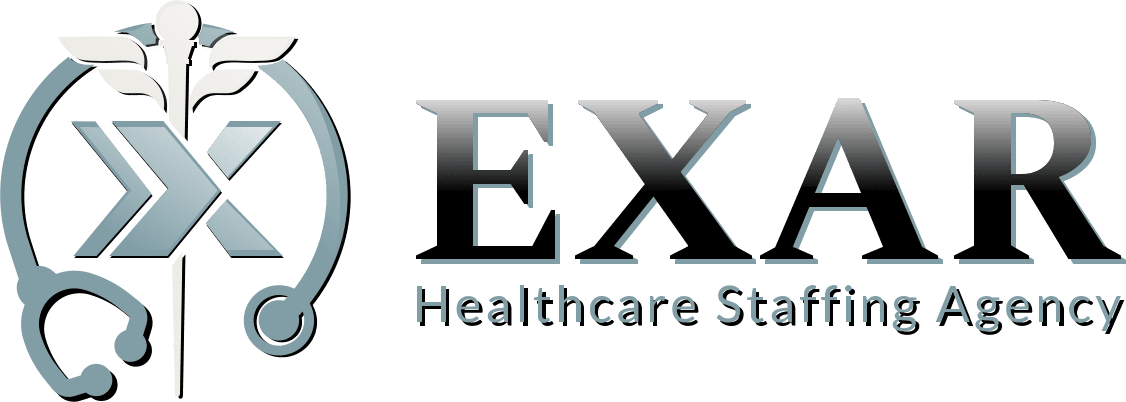Key Skills to Look for When Hiring Healthcare Professionals
- Focus on candidates with strong clinical knowledge, effective communication skills, and the ability to adapt in high-pressure situations.
- Prioritize professionals who demonstrate empathy, teamwork, and attention to detail to improve patient care and workplace efficiency.
- Seek individuals with technical proficiency, cultural competence, and a commitment to continuous learning to maintain high care standards.
Hiring healthcare professionals requires careful evaluation of skills that directly impact patient care and workplace efficiency. Whether recruiting nurses, caregivers, or administrative staff, identifying the right qualities is important. By focusing on key skills, healthcare organizations can select candidates who deliver reliable care while contributing positively to team dynamics.
Clinical Expertise and Knowledge
Healthcare professionals must have a strong foundation in clinical practices. Their ability to assess symptoms, administer treatments, and respond to medical emergencies depends on their technical knowledge. Candidates should demonstrate an understanding of common medical conditions, diagnostic procedures, and treatment protocols.
In addition to medical expertise, they must stay updated with industry advancements. Regular participation in training programs, certifications, and continuing education helps them maintain best practices. Employers should prioritize candidates who actively seek opportunities to expand their knowledge.
Communication Skills
Clear communication is vital in healthcare settings. Professionals must convey information to patients, families, and colleagues in a way that is easy to understand. This includes explaining diagnoses, discussing treatment options, and providing clear instructions for medication or follow-up care.
Strong listening skills are equally important. Healthcare workers must pay close attention to patient concerns and respond with empathy. Effective communication reduces misunderstandings, builds trust, and helps ensure patients receive appropriate care.
Critical Thinking and Problem-Solving

Medical professionals often face urgent situations that require quick decisions. Critical thinking allows them to assess symptoms, prioritize care, and determine the most effective treatment strategies. Candidates with strong problem-solving skills can adapt to unexpected challenges, such as medical complications or equipment failures.
Employers should assess a candidate’s ability to analyze information, identify risks, and apply sound judgment in high-pressure situations. Professionals who demonstrate these skills contribute to safer and more effective patient care.
Compassion and Empathy
This role requires compassion when supporting patients and families. Empathetic professionals provide emotional support while addressing medical needs. Candidates should demonstrate patience, kindness, and the ability to connect with individuals from diverse backgrounds.
Empathy helps patients feel heard and valued, which can improve cooperation during treatments. Hiring professionals who show compassion contributes to a positive care environment.
Adaptability and Flexibility
Medical environments are dynamic, with changing patient needs and unexpected emergencies. Professionals must be flexible in their approach, adjusting to new schedules, treatment plans, or technologies.
Candidates who adapt quickly can manage unpredictable workloads without compromising care quality. This skill is particularly important in fast-paced settings such as emergency rooms, home health care, and long-term care facilities.
Time Management and Organization
Healthcare workers must manage multiple responsibilities, from monitoring patients to documenting care plans. Strong time management skills allow them to complete tasks efficiently while prioritizing urgent needs.
Candidates should demonstrate their ability to manage appointments, meet deadlines, and handle unexpected challenges without compromising patient safety. Well-organized professionals maintain accurate records, follow proper protocols, and prevent errors in treatment or medication administration.
Teamwork and Collaboration
Healthcare professionals rarely work in isolation, so effective teamwork is necessary to deliver coordinated care. Candidates should show their ability to collaborate with nurses, physicians, therapists, and support staff.
Strong team players communicate openly, share responsibilities, and contribute to collective decision-making. By fostering a cooperative environment, healthcare teams improve patient outcomes and workplace efficiency.
Emotional Resilience and Stress Management
Healthcare roles often involve high-pressure situations, emotional demands, and challenging patient outcomes. Candidates must demonstrate resilience to manage stress while remaining calm and focused.
Professionals with emotional stability can handle difficult conversations, maintain composure during emergencies, and provide consistent support to patients. Employers should seek candidates who develop healthy coping strategies to manage workplace pressures effectively.
Attention to Detail
In healthcare, small errors can have serious consequences. Candidates must demonstrate accuracy when documenting medical histories, administering treatments, or updating patient records.
Professionals with strong attention to detail reduce the risk of medication errors, misdiagnoses, and procedural mistakes. This skill is particularly important in roles that involve administering prescriptions, handling laboratory samples, or preparing treatment plans.
Cultural Competence
Medical professionals often care for patients from diverse backgrounds. Cultural competence helps them understand and respect different beliefs, values, and communication styles.
Candidates should show a willingness to learn about cultural differences and adapt their approach to meet each patient’s unique needs. This skill improves patient trust and encourages cooperation during treatments.
Technical Proficiency
Modern healthcare relies on advanced technologies for diagnostics, electronic health records, and treatment planning. Candidates must demonstrate confidence in using medical devices, digital records systems, and telehealth platforms.
Professionals with technical proficiency can adapt quickly to new tools, improving workflow efficiency and reducing administrative errors. This skill is particularly important for healthcare settings that rely on digital solutions for data management and patient care.
Ethical Judgment and Integrity
Medical professionals must uphold ethical standards when making decisions about patient care. Candidates should demonstrate honesty, accountability, and respect for confidentiality.
Employers should assess a candidate’s ability to handle sensitive information, maintain professional boundaries, and follow legal guidelines. Strong ethical judgment ensures patients receive fair and unbiased care.
Commitment to Continuous Learning
The healthcare industry constantly evolves, with new treatments, regulations, and technologies emerging regularly. Professionals who stay informed can apply updated methods to improve patient care.
Candidates should demonstrate a proactive approach to learning through certifications, workshops, and specialized training programs. This commitment helps healthcare organizations maintain high care standards.
Final Thoughts
Identifying the right skills when hiring healthcare professionals is critical to building a competent and reliable team. By evaluating candidates for these skills, healthcare organizations can select professionals who contribute to improved patient outcomes and a positive workplace environment.
Find the right healthcare professionals to maintain quality care and efficient operations. At EXAR Healthcare Staffing Agency, we specialize in direct hire solutions, connecting you with skilled candidates ready to make a positive impact. Our thorough screening process ensures you receive qualified professionals who align with your organization’s goals. Contact us today to build a stronger, more reliable healthcare team.
